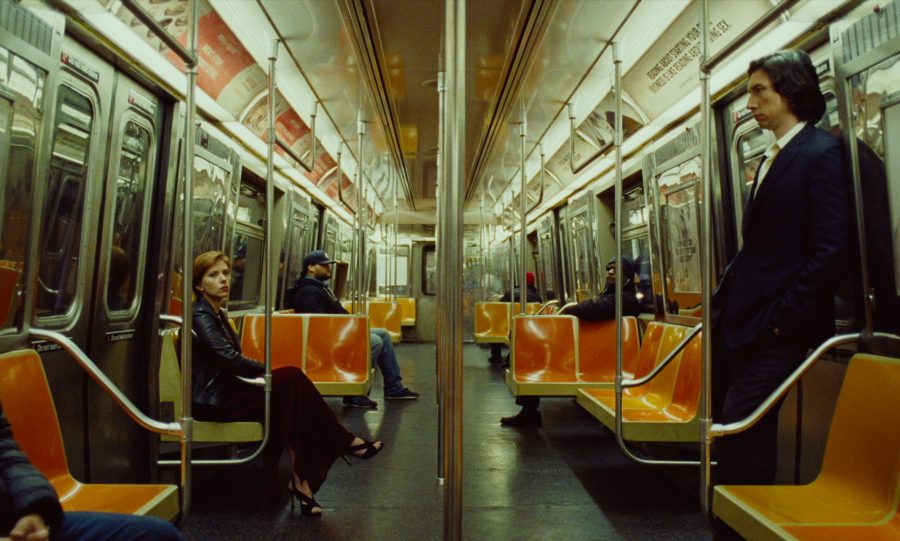It’s a logline five words long: a couple goes through divorce. Crack all the jokes you want – “Shouldn’t it be called ‘Divorce Story?’” Plainly, no. Marriage encompasses a world divorce only inhabits as an ending. In Noah Baumbach’s “Marriage Story,” Charlie (Adam Driver) and Nicole (Scarlett Johansson) Barber’s relationship is as much a portrait of love – before, after, denouement and climax — as it is a story of growing up. The film is a coming-of-age of sorts featuring pre-midlife crisis adults coping with their career ambitions, independent artistic expression and the eve of middle age.
While Baumbach’s previous claims to fame “Frances Ha” (2012) and “Mistress America” (2015) follow women simultaneously on the verge of breakdown and breakthrough, this story is a study of a relationship split down the middle, examining two freestanding characters who are unable to coexist yet also are unbelievably strong together. It’s a paradox whose nature is complicated by explorations of past feelings and anecdotes; trying to understand what led to the decline of this deep love is a race against time as the formal court proceedings draw ever closer.
Even when the two meet in a sterile, overly-polished glass conference room with lawyers to formally discuss the division of property and custody of their child, the numb space blossoms into a mirror of the past. As Charlie nervously struggles to decide what to order during the catered lunch, Nicole deftly vocalizes exactly what it is Charlie can’t express. Charlie sighs with relief, but Nicole’s disbelieving blinks at her immediate instinct to defend a man her lawyer instructs her to tear down provoke the heartbreaking question: where did it all go wrong?
The emotional intensity captured by Driver and Johansson — whose coupling proves one of the best castings of the year — makes this film one of Baumbach’s finest. In one scene, Charlie struggles to get Henry, the couple’s son, to accompany him in the car as Henry clings onto his mother; the image of both parents tugging on the child, caught in the middle, unmasks an aggression that destroys the picture of the serene family unit from the film’s opening, with Henry lying peacefully asleep between his parents.
It is clear that the center of the story is Charlie. Nicole grows increasingly materialistic as she sheds Charlie’s artist-intellectual New Yorker attitude in favor of an image-conscious Los Angeles scene. Despite Nicole’s suffocation due to her inability to establish a career and personality independently of Charlie, her newfound freedom appears selfish. It’s easy to side with Charlie as he seems to grow increasingly destitute and distraught. While he sacrifices work opportunities in Los Angeles to visit his son in New York and becomes desperate, paying for expensive lawyers, Nicole seems smug with the support of family and friends and the comfort of her son’s obvious love for her.
It’s clear that Baumbach is first and foremost a writer, not only because the real energy of the film lies in dialogue and exposition, but because he understands the power of words to create and destroy. Language drives the film, an element that practically assumes its own character. Words and stories are the catalyst for raised voices and courtroom drama.
“Marriage Story” is truly a Baumbach film, stamped by a trademark combination of hysteria and hilarity. Nora (Laura Dern) is a lawyer-for-show whose vicious quips are underscored by a knack for contemporary comedy. Though her quick jokes feel exhausting and ill-timed in more serious moments, Nora encapsulates Baumbach’s conception of character: they’re not all stereotypes, but edge close to becoming someone we all know.
The film paints a story of the privileged, white New Yorker artist-intellectual elite that feels narrow and inaccessible at times; however, the film’s emotional quality might be just the right thing to elicit a full-body sob and a peal of laughter.
Email Alexandra Bentzien at [email protected].


























































































































































